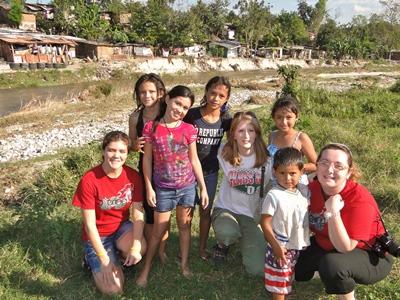Intercultural Experience in Social Inequality

 Students from Sterling College spent two weeks of Interterm traveling throughout Honduras to study social inequality under the direction of Professor of Psychology Dr. Arn Froese. Students visited San Pedro Sula, Santa Cruz de Yojoa, and Copan Ruinas on their quest to gain an understanding of the extreme economic diversity within the country.
Students from Sterling College spent two weeks of Interterm traveling throughout Honduras to study social inequality under the direction of Professor of Psychology Dr. Arn Froese. Students visited San Pedro Sula, Santa Cruz de Yojoa, and Copan Ruinas on their quest to gain an understanding of the extreme economic diversity within the country.
Currently, Honduras is the second poorest country in Central America and suffers from underemployment.
Students began their journey in San Pedro Sula, where they visited a museum, market, and church to learn about the culture. They also met with Sterling College alumnus Jorge Bueso ’08 to learn about more about workplace conditions and employment in the middle class. Bueso is a professionally employed market researcher who makes less than one-third of what he could make working a similar job in the U.S. Along with the low wages, his job expects him to work many hours of overtime without additional pay.
Next, they traveled to a peasant community near Santa Cruz de Yojoa, where children begin farming as early as age 10. At the farm they witnessed extreme poverty. Froese said, “Members of one cooperative group were working to recover land that had been taken from them over 20 years ago. They currently farm the land, but are in a legal battle against former landowners. Because they have no running water on their property and because their land holdings are not yet secure, they live in small shacks and carry their water uphill.”
Senior Adedrea Smart said, “No single farming family could make enough to live off of alone, so as a union, they pool the income produced from the land divide it equally. It is the only way for those who work the land to make ends meet.”
“Former presidents of Honduras and investors from other countries focused on the vast resources of gold, silver and tropical fruits available for exporting to build their wealth,” said Froese. “They have exploited the workers creating a country of extreme wealth and poverty.”
When students were not discussing economics, they helped build a church, played soccer with the kids, visited a rain forest, toured the Mayan ruins in Copan Ruinas, and attended a church service.
- Log in to post comments


